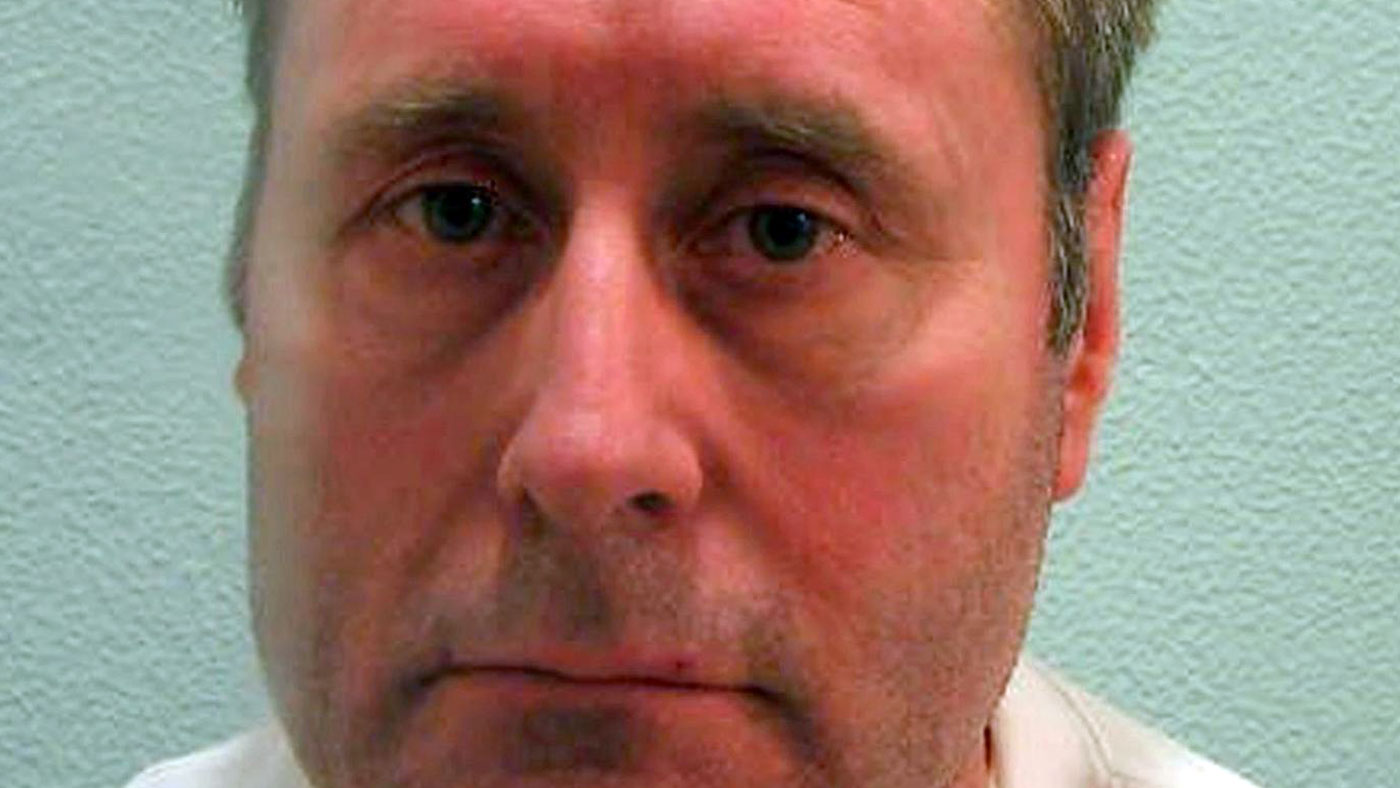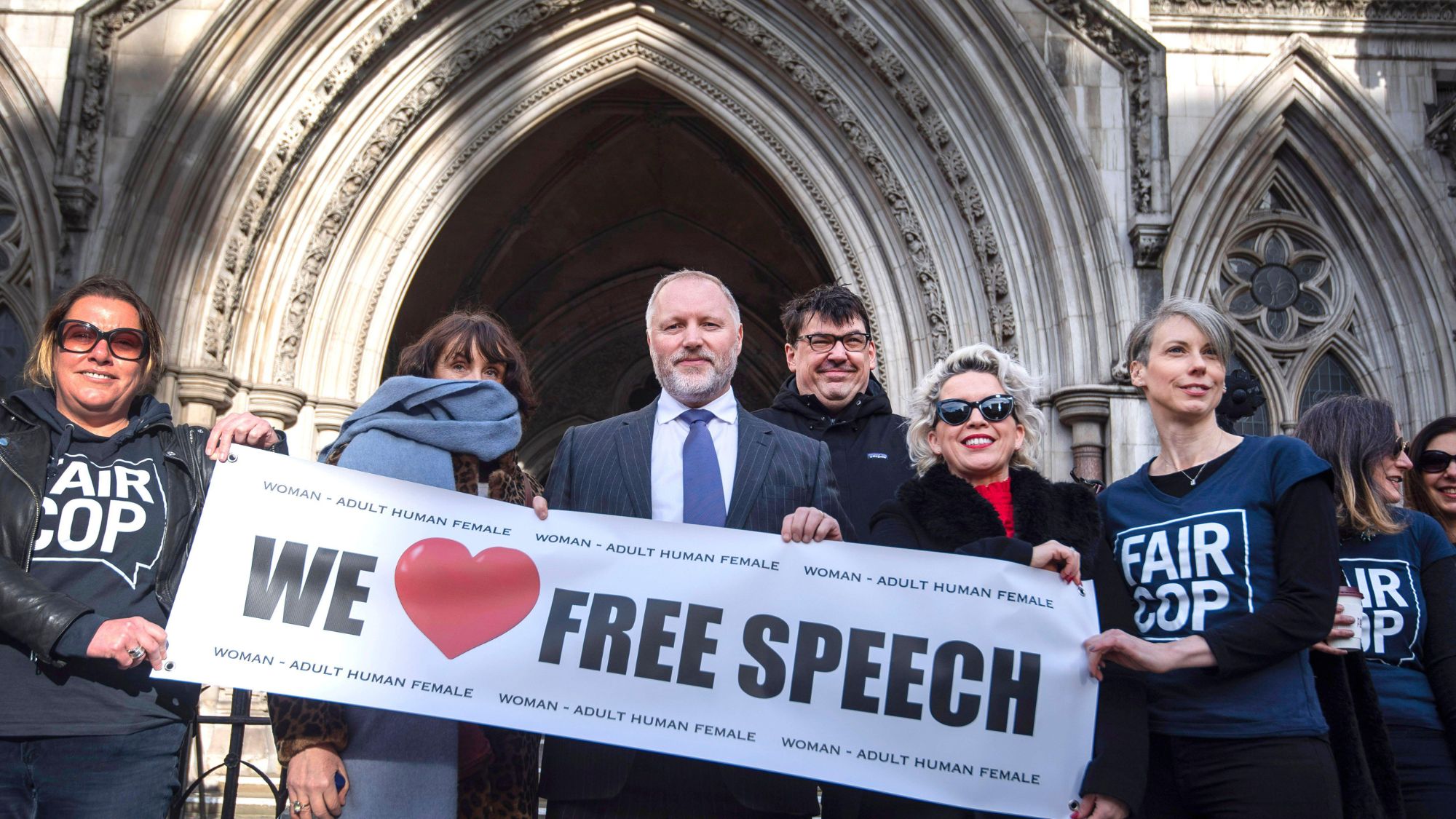John Worboys release quashed as Parole Board head resigns
Nick Hardwick quits after High Court overturns release of black cab rapist

A free daily email with the biggest news stories of the day – and the best features from TheWeek.com
You are now subscribed
Your newsletter sign-up was successful
The chair of the Parole Board has resigned after High Court judges overturned a decision to release convicted rapist John Worboys from jail.
Nick Hardwick reportedly stepped down immediately after being told by Justice Secretary David Gauke that his position was “untenable”.
In his letter of resignation to Gauke, Hardwick said he was “sorry for the mistakes that were made in this case”.
The Week
Escape your echo chamber. Get the facts behind the news, plus analysis from multiple perspectives.

Sign up for The Week's Free Newsletters
From our morning news briefing to a weekly Good News Newsletter, get the best of The Week delivered directly to your inbox.
From our morning news briefing to a weekly Good News Newsletter, get the best of The Week delivered directly to your inbox.
Worboys, 60, was convicted of one rape, five sexual assaults, one attempted assault and 12 drugging charges in 2009, and police believe he may have committed more than 100 further rapes and assaults between 2002 and 2008.
In November last year, the Parole Board approved his release with “stringent licence conditions”, insisting its decision was based on appropriate evidence.
But a legal challenge filed by two of his victims and Mayor of London Sadiq Khan in January was today backed by the High Court, which said “further inquiry” was needed into the former taxi driver’s offences.
The case will now be referred back to the Parole Board, according to the BBC.
A free daily email with the biggest news stories of the day – and the best features from TheWeek.com
Khan tweeted that the decision would bring “some reassurance to his victims and to all Londoners”.
Confirming that Hardwick had stood down, Gauke said: “I accept Professor Hardwick’s resignation and believe this is the correct decision in light of the serious failings outlined in today’s judgment. I would also like to express my appreciation for his committed service to the board and the contribution he has made to my department’s review of parole processes.”
However, according to the London Evening Standard, “today’s ruling will raise questions about the judgement of Gauke”, who decided not to join the victims and the mayor in challenging the Parole Board’s decision after receiving legal advice that they would be unlikely to win.
“That assessment has now turned out to be flawed and will bolster the criticisms of some Tory MPs who had called for Gauke to take legal action,” the newspaper says.
-
 What are the best investments for beginners?
What are the best investments for beginners?The Explainer Stocks and ETFs and bonds, oh my
-
 What to know before filing your own taxes for the first time
What to know before filing your own taxes for the first timethe explainer Tackle this financial milestone with confidence
-
 The biggest box office flops of the 21st century
The biggest box office flops of the 21st centuryin depth Unnecessary remakes and turgid, expensive CGI-fests highlight this list of these most notorious box-office losers
-
 Why have homicide rates reportedly plummeted in the last year?
Why have homicide rates reportedly plummeted in the last year?Today’s Big Question There could be more to the story than politics
-
 How the ‘British FBI’ will work
How the ‘British FBI’ will workThe Explainer New National Police Service to focus on fighting terrorism, fraud and organised crime, freeing up local forces to tackle everyday offences
-
 ‘Stakeknife’: MI5’s man inside the IRA
‘Stakeknife’: MI5’s man inside the IRAThe Explainer Freddie Scappaticci, implicated in 14 murders and 15 abductions during the Troubles, ‘probably cost more lives than he saved’, investigation claims
-
 3 officers killed in Pennsylvania shooting
3 officers killed in Pennsylvania shootingSpeed Read Police did not share the identities of the officers or the slain suspect, nor the motive or the focus of the still-active investigation
-
 Dash: the UK's 'flawed' domestic violence tool
Dash: the UK's 'flawed' domestic violence toolThe Explainer Risk-assessment checklist relied on by police and social services deemed unfit for frontline use
-
 The ethics behind facial recognition vans and policing
The ethics behind facial recognition vans and policingThe Explainer The government is rolling out more live facial recognition technology across England
-
 The Met police's stop and search overhaul
The Met police's stop and search overhaulThe Explainer More than 8,500 Londoners have helped put together a new charter for the controversial practice
-
 NCHIs: the controversy over non-crime hate incidents
NCHIs: the controversy over non-crime hate incidentsThe Explainer Is the policing of non-crime hate incidents an Orwellian outrage or an essential tool of modern law enforcement?